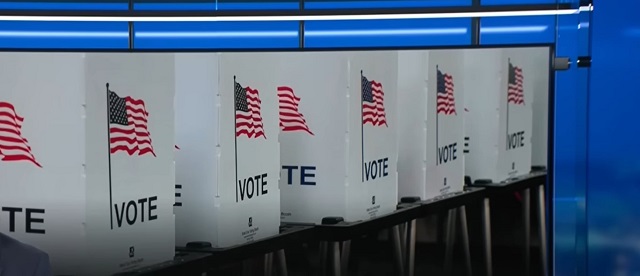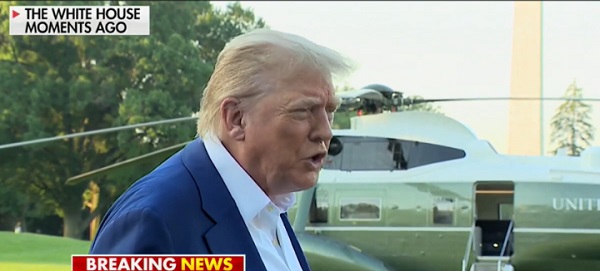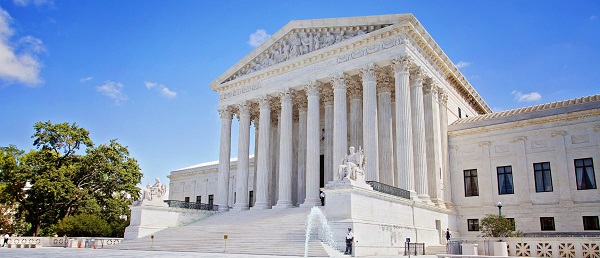Daily Caller
‘Zuck Bucks’ Need To Be Stopped Cold

 From the Daily Caller News Foundation
From the Daily Caller News Foundation
By Jason Snead
It is less than 90 days to Election Day, and right on queue the group behind the “Zuck Bucks” campaign of 2020 is back with a new scheme. This time, the Center for Tech and Civic Life (CTCL) is doling out millions in grant dollars to rural election administrators in 19 states.
Election officers beware. The group is trying to turn the government offices that run elections into bastions of partisan progressive activism. Election officials striving for nonpartisanship should steer clear.
CTCL rose to prominence during the unprecedented election of 2020. The group got $350 million from Meta CEO Mark Zuckerberg, which it then funneled disproportionately to swing-state communities that ultimately voted for Joe Biden.
Racine, Wisconsin used its CTCL money to purchase a mobile voting van that in 2022 it deployed to heavily Democrat areas of the city to register voters and collect ballots. Earlier this year, a judge declared that illegal.
After 2020, a majority of states moved to ban or restrict private funding for running election offices, including several on a bipartisan basis. This year, Wisconsin voters approved two constitutional amendments to ban private funding after the scope of CTCL’s involvement was revealed. Even Mark Zuckerberg announced he would no longer back the group’s grants.
But that did not stop CTCL. Instead, it created “Zuck Bucks 2.0,” an $80 million program called the U.S. Alliance for Election Excellence.
Now, CTCL is offering grants to rural counties, saying it is merely helping cash-strapped offices on the eve of a contentious election. Sound familiar?
The sudden interest in flyover country is laughable. In 2020, rural areas got token grants of just $5,000 while urban areas got millions. CTCL claimed that big cities have more voters and therefore need more money. Subsequent analyses showed that blue counties got far money more per voter than red counties.
Perhaps CTCL hopes this move can insulate it against criticism that it is once again influencing elections. Not so fast. Reports indicate that CTCL is setting aside $2.5 million for rural grants.
CTCL is giving $3 million to Clark County, Nevada, for this election cycle alone. Add in the huge grants offered to heavily Democrat DeKalb County, Georgia and Madison, Wisconsin, and CTCL has given nearly three times the grants to just these heavily Democrat areas (located in swing states, no less) than hundreds of rural counties could get combined.
In fairness, CTCL is not wrong that rural areas often need additional resources. But those funds should come from state and local taxpayers, not partisan groups pushing an agenda.
And make no mistake, CTCL has a political agenda. Though it claims to be nonpartisan, it’s founder and executive director is a former Obama Foundation fellow and used to work at a group the Washington Post once labeled the “Democratic party’s Hogwarts for digital wizardry.” CTCL’s donors are just as left-wing, with major liberal organizations like the Skoll Foundation, Democracy Fund, and Arabella Advisors’ New Venture Fund footing its bills.
Small wonder, then, that by this April 28 states had banned or restricted CTCL-style private funding. Over the last few years, residents in communities from Greenwich, Connecticut, to Brunswick County, North Carolina, have opposed election administrators joining ranks with such a partisan group. Ottawa County, Michigan, declined to accept $1.5 million in CTCL funds with the county clerk explaining that accepting the grant could compromise public confidence in elections.
Over the next few months, CTCL will offer hundreds of rural counties “free” money. Many may feel inclined to take it. Before they do, they should know who they are doing business with.
Rural election offices may need additional funding, but turning to partisan groups like CTCL just puts public trust in elections at risk. County officials should treat CTCL’s latest offer of “free” money the way they would treat a windowless van hanging a sign marked “free candy:”
Stay away and warn your friends.
Jason Snead is the Executive Director of Honest Elections Project Action.
conflict
‘They Don’t Know What The F*ck They’re Doing’: Trump Unloads On Iran, Israel


From the Daily Caller News Foundation
President Donald Trump expressed frustration Tuesday after Iran broke a ceasefire, prompting retaliation from Israel during a gaggle with reporters on the White House lawn.
Trump announced the ceasefire Monday, saying it was supposed to take effect at 1 a.m. Eastern Daylight Time, but Iran fired missiles at Israel Tuesday. Trump vented, saying the countries had been “fighting so long” they couldn’t make peace.
WATCH:
“You know, when I say okay, now you have 12 hours, you don’t go out in the first hour just drop everything you have on them,” Trump said. “So I’m not happy with them. I’m not happy with Iran either. But I’m really unhappy if Israel is going out this morning because the one rocket that didn’t land, that was shot, perhaps by mistake, that didn’t land, I’m not happy about that.”
“We basically have two countries that have been fighting so long and so hard, that they don’t know what the fuck they are doing,” Trump added.
The United States struck facilities in Fordow, Natanz and Isfahan related to Iran’s effort to develop nuclear weapons early Sunday morning local time, using as many as 14 GBU-57 Massive Ordnance Penetrators in the operation, which involved a 37-hour flight by seven B-2A Spirit bombers.
The American strikes came ten days after Israel launched a military operation targeting the Iranian nuclear program. Iran has responded with repeated missile attacks on Israeli cities and a refusal to resume negotiations over its efforts to pursue nuclear weapons.
Automotive
Supreme Court Delivers Blow To California EV Mandates


From the Daily Caller News Foundation
“The Supreme Court put to rest any question about whether fuel manufacturers have a right to challenge unlawful electric vehicle mandates”
The Supreme Court sided Friday with oil companies seeking to challenge California’s electric vehicle regulations.
In a 7-2 ruling, the court allowed energy producers to continue their lawsuit challenging the Environmental Protection Agency’s decision to approve California regulations that require manufacturing more electric vehicles.
“The government generally may not target a business or industry through stringent and allegedly unlawful regulation, and then evade the resulting lawsuits by claiming that the targets of its regulation should be locked out of court as unaffected bystanders,” Justice Brett Kavanaugh wrote in the majority opinion. “In light of this Court’s precedents and the evidence before the Court of Appeals, the fuel producers established Article III standing to challenge EPA’s approval of the California regulations.”
Kavanaugh noted that “EPA has repeatedly altered its legal position on whether the Clean Air Act authorizes California regulations targeting greenhouse-gas emissions from new motor vehicles” between Presidential administrations.
“This case involves California’s 2012 request for EPA approval of new California regulations,” he wrote. “As relevant here, those regulations generally require automakers (i) to limit average greenhouse-gas emissions across their fleets of new motor vehicles sold in the State and (ii) to manufacture a certain percentage of electric vehicles as part of their vehicle fleets.”
The D.C. Circuit Court of Appeals previously rejected the challenge, finding the producers lacked standing to sue.
“The Supreme Court put to rest any question about whether fuel manufacturers have a right to challenge unlawful electric vehicle mandates,” American Fuel & Petrochemical Manufacturers (AFPM) President and CEO Chet Thompson said in a statement.
“California’s EV mandates are unlawful and bad for our country,” he said. “Congress did not give California special authority to regulate greenhouse gases, mandate electric vehicles or ban new gas car sales—all of which the state has attempted to do through its intentional misreading of statute.”
-

 Agriculture2 days ago
Agriculture2 days agoCanada’s supply management system is failing consumers
-

 Alberta1 day ago
Alberta1 day agoAlberta uncorks new rules for liquor and cannabis
-

 Energy20 hours ago
Energy20 hours agoB.C. Residents File Competition Bureau Complaint Against David Suzuki Foundation for Use of False Imagery in Anti-Energy Campaigns
-

 COVID-1919 hours ago
COVID-1919 hours agoCourt compels RCMP and TD Bank to hand over records related to freezing of peaceful protestor’s bank accounts
-

 Crime1 day ago
Crime1 day agoProject Sleeping Giant: Inside the Chinese Mercantile Machine Linking Beijing’s Underground Banks and the Sinaloa Cartel
-

 International1 day ago
International1 day agoTrump transportation secretary tells governors to remove ‘rainbow crosswalks’
-

 Alberta23 hours ago
Alberta23 hours agoAlberta Next: Alberta Pension Plan
-

 C2C Journal17 hours ago
C2C Journal17 hours agoCanada Desperately Needs a Baby Bump



